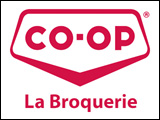A report released by the United States Drug Enforcement Administration (DEA) says the growth of gangs in Manitoba plays a role in the rise of drugs on the streets in the United States.
The DEA’s 2009 North Dakota Drug Fact Sheet indicates Manitoba gangs are increasingly using the border with North Dakota to smuggle high-potency marijuana. A 2008 report from the U.S. National Drug Intelligence Center also pointed to Manitoba, saying that the Midwest United States may see an increase of high grade marijuana as traffickers, “increase their production in Manitoba, particularly the Winnipeg area.” (2008 Midwest High Intensity Drug Trafficking Area Analysis)
Progressive Conservative Justice Critic Kelvin Goertzen says for Manitoba that means more guns on our streets.
“The size and sophistication of drug operations in Manitoba are growing,” Goertzen said. “It’s particularly concerning because an increased drug presence almost always means an increased gun presence.”
Goertzen said law enforcement officials have raised concerns that drugs are often traded for weapons and moved across the border.
“Guns and drugs are the main currency gangs trade in,” Goertzen said. “By failing to crack down on gangs and the drug trade in Manitoba, the NDP has allowed an ever increasing level of guns and violence on our streets.”
Goertzen commended the efforts of local law enforcement both in the City of Winnipeg and throughout the province for their efforts to bust grow-ops.
“Police are doing everything they can with the resources they have to keep a lid on Manitoba’s drug problem,” Goertzen said, “but without more resources and a commitment to fight addiction with a drug treatment jail, the problem is likely to get worse before it gets better.”



